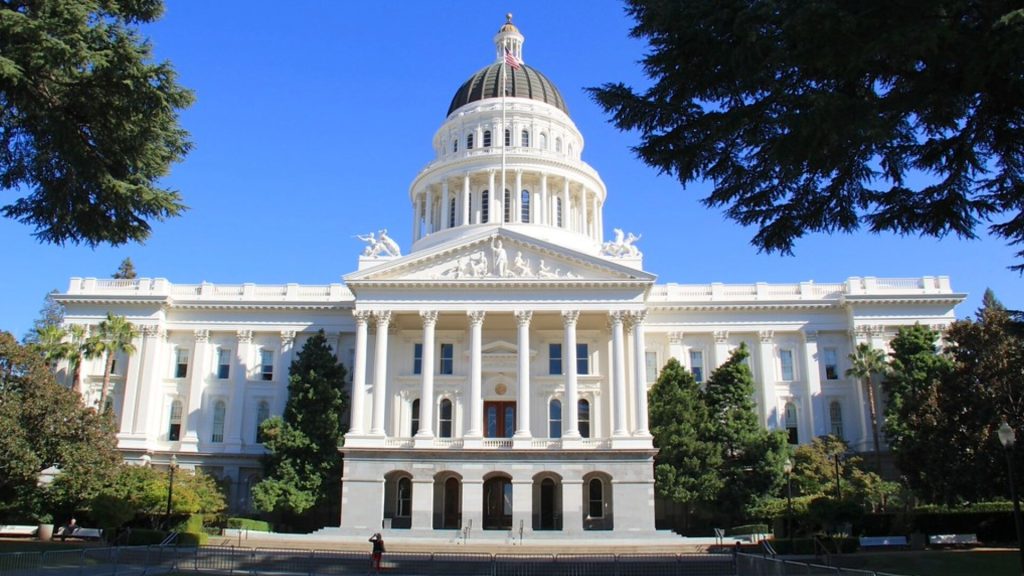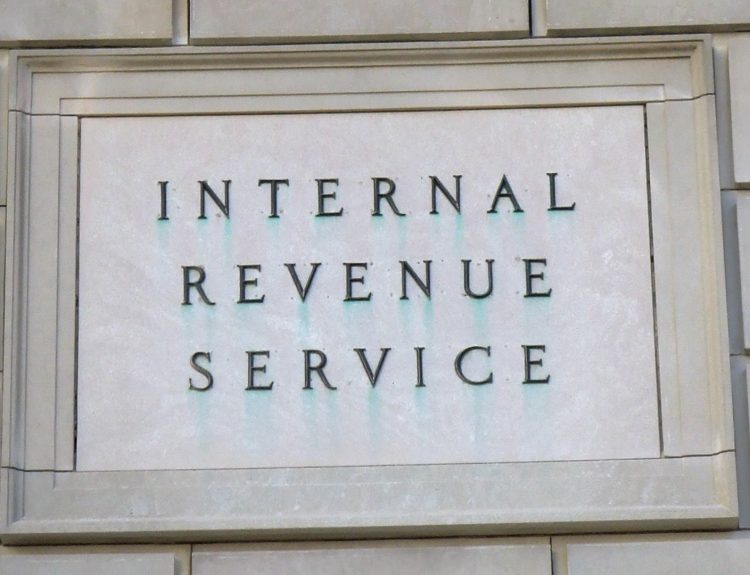As California grapples with a staggering $68 billion budget deficit, the state has introduced a new wealth tax and a controversial exit tax targeting affluent residents moving out of state.
Finance expert John Williams has analyzed these tax policies, shedding light on their implications for California’s residents and the state’s economic future. The new measures have sparked a heated debate about the fairness and legality of taxing individuals based on their wealth and residency status.
California’s $68 Billion Budget Deficit Prompts Drastic Measures
To address its substantial budget deficit, California has implemented a wealth tax that includes the annual taxation of the rich based on their assets. The state has also taken a more aggressive approach to investigating and potentially litigating against affluent individuals suspected of underreporting their wealth, enlisting the help of attorneys to ensure compliance.

The state’s new tax policies have raised eyebrows among residents and financial experts alike, with many questioning the fairness and long-term sustainability of these measures. As California struggles to balance its budget, the wealth tax and increased scrutiny of asset reporting have become central to the state’s revenue-generating strategy.
The California Exit Tax: A Burden for Those Relocating
One of the most controversial aspects of California’s new tax policies is the proposed exit tax for individuals and businesses moving out of state. While not explicitly labeled as an “exit tax,” the legislation could impose a significant financial burden on those seeking to relocate to areas with lower tax rates.

The exit tax is seen as a way for California to retain tax contributions from wealthy residents, even after they have left the state. Critics argue that this measure unfairly penalizes individuals for exercising their right to move and could discourage businesses from operating in California.
Wealth Tax Rates and Implications for High-Net-Worth Individuals
Starting in 2024, the proposed wealth tax rate in California would be 1.5% for net worths exceeding $1 billion, later adjusting to 1% for net worths over $50 million in 2026. The tax aims to apply to full-time, part-year, and temporary residents, with specific provisions for apportionment.

The exit tax mechanism is designed to allow taxation for several years after a taxpayer leaves California, classifying them as a “Wealth Tax Resident.” This provision has raised concerns among high-net-worth individuals who fear being subject to California’s taxes even after relocating.
Exemptions and the Scope of California’s Wealth Tax
California’s proposed wealth tax is structured to exempt residents with a net worth below $50 million. Only those already subject to the wealth tax would be required to pay the exit tax upon moving out of state. This policy is part of a legislative effort to ensure fair taxation while considering the impact on various residents’ financial situations.

Despite these exemptions, critics argue that the wealth tax and exit tax could still have unintended consequences, such as discouraging investment in California and driving wealthy residents to other states.
Legal and Constitutional Concerns Surrounding the Wealth and Exit Taxes
The proposed wealth and exit taxes have faced scrutiny regarding their legality and constitutionality. Some critics question whether taxing individuals no longer residing in California or discriminating against interstate commerce violates the Due Process or Commerce Clauses of the Constitution.

These legal challenges underscore the complex nature of implementing such taxes and the potential for lengthy court battles. As California moves forward with its new tax policies, it will likely face significant legal hurdles and opposition from affected residents and businesses.
The Real-World Impact on California Residents
Finance expert John Williams highlights the real-life consequences of California’s tax policies, particularly for individuals heavily invested in the state’s real estate market. With property values declining and taxes increasing, many residents face significant financial risks.

The economic implications of the state’s tax policies extend beyond the wealthy, potentially affecting the broader population. As California grapples with its budget deficit, the impact on residents’ financial well-being has become a pressing concern.
The Potential Spread of Wealth Taxes to Other States
Williams warns that California’s tax measures could set a precedent for other states facing financial difficulties. Cities like Philadelphia, Boston, Atlanta, and Chicago might adopt similar tax policies, targeting the wealthy to address budget shortfalls.

This speculation suggests a possible trend of increased taxation on the wealthy across different states, raising questions about the long-term economic consequences and the potential for a wider exodus of high-net-worth individuals.
A Closer Look at California’s Wealth Tax Legislation
California’s proposed wealth tax casts a wide net, targeting not just full-time residents but also part-time inhabitants and recent movers. The tax’s reach extends to a proportion of an individual’s wealth, calculated based on the days spent in California each year.

Former residents may find themselves obligated to pay the wealth tax even after leaving the state, emphasizing California’s intent to secure revenue from a broad base of wealth holders. The tax encompasses various assets, from partnerships and private equity interests to artwork and offshore financial assets.
The Financial Implications of California’s Wealth Tax
The wealth tax is projected to raise approximately $21.6 billion annually, assuming no significant exodus of wealthy individuals from the state. However, this revenue may still fall short of covering California’s budget deficit and increasing Medicaid costs.

As California relies heavily on its wealthiest residents for tax revenue, the potential departure of high-net-worth individuals could have severe consequences for the state’s financial stability.
The Exodus of Wealthy Californians
A significant portion of those leaving California includes some of the state’s wealthiest individuals. This exodus poses a risk to California’s tax revenue, as 40% of the state’s tax income is derived from earners in the top 1%.

The migration of these high earners could dramatically impact the state’s financial stability, leaving California struggling to maintain its tax revenue levels and fund essential services.
Migration Figures Reveal Alarming Trends
Jared Walczak, Tax Foundation Vice President of State Projects, emphasized the stark migration numbers in California during an interview with FOX Business. The movement of taxpayers out of the state is alarming for the economy, as it faces challenges in maintaining tax revenue levels.

With a net loss of over 158,200 tax returns and a net loss exceeding 331,700 individuals between 2020 and 2021, California’s population exodus is a growing concern for the state’s financial future.
California’s Reliance on High Earners
California’s economic challenges are underscored by its dependence on a small percentage of high earners for a substantial portion of its tax revenue. The state’s budget is uniquely susceptible to fluctuations in the stock market and the economic decisions of its wealthiest residents.

As these individuals begin to leave the state, the potential for a significant reduction in tax revenue grows, posing a risk to the stability and sustainability of public funding and services.
The Decline in High-Income Tax Returns
California has observed a decline in tax returns from high earners, with over 27,300 fewer returns reporting an adjusted gross income of at least $200,000 between 2020 and 2021. This trend is concerning for the state, which has long relied on the contributions of its wealthiest residents to support its budget.

The exodus of wealthy Californians threatens to exacerbate the state’s financial challenges, forcing policymakers to confront the need for alternative revenue sources and spending cuts.
Factors Driving Population Loss in California
California’s challenges are multifaceted, including high living costs, the housing market, and the rise of remote work, as reported by the Los Angeles Times. These factors, combined with the state’s high taxes, are prompting residents, including wealthy ones, to relocate.

As more Californians seek opportunities elsewhere, the state must grapple with the consequences of a shrinking population and the potential loss of its tax base.
Governor Newsom’s Optimism Amid Challenges
Despite California’s dwindling population and looming budget deficit, Governor Gavin Newsom remains optimistic about the state’s future. In an interview on “Hannity,” Newsom addressed the recent population decrease and the state’s economic struggles compared to Florida.

Newsom highlighted an interesting statistic to counter concerns, stating, “Per capita, more Floridians move to California than California is moving to Florida.” This statement underscores the governor’s confidence in California’s ability to attract and retain residents, even in the face of economic challenges.
The Economic Fallout of Population Decline
The decline in California’s population and the exit of high-net-worth individuals are impacting the state’s economic framework. These shifts threaten the long-term funding of California’s programs, which heavily depend on continued population growth and high earnings.

As the state grapples with the consequences of population loss, policymakers must find ways to adapt and ensure the sustainability of essential services and infrastructure.
Tackling the $68 Billion Budget Deficit
To address its substantial budget deficit, California may need to tap into its $24 billion in reserves and consider reducing spending in certain areas, including Proposition 98 spending. These measures are part of the potential solutions being evaluated to manage the state’s financial challenges.

As California navigates its fiscal crisis, tough decisions lie ahead, requiring a delicate balance between revenue generation and spending cuts to ensure long-term financial stability.
California’s Struggles in a National Context
While California’s situation is notable, it is not unique. The populations of seven other states also declined in 2023, reflecting broader demographic trends that various states are navigating in the United States.

As states grapple with the consequences of population shifts, they must adapt their policies and strategies to ensure economic resilience and maintain the well-being of their residents.
National Population Growth Continues
Despite the challenges faced by California and other states, the United States as a whole continues to grow. The national population reached 334.9 million in 2023, growing by 1.6 million people over 12 months.

This growth underscores the dynamic nature of the country’s demographic landscape and the need for states to develop strategies that accommodate evolving population trends.
The Ripple Effects of California’s Tax Policies
The introduction of the wealth and exit taxes in California raises questions about the state’s fiscal sustainability and its impact on resident taxpayers, including those not directly affected by the wealth tax. There’s a growing concern that, over time, the financial burden may extend beyond the wealthy, potentially affecting the middle class and altering the state’s economic landscape.

As California implements its new tax policies, it must carefully consider the long-term consequences and ensure that the measures do not inadvertently harm the very residents they aim to support.
The Quest for a Balanced Approach
California’s policymakers face the daunting task of balancing the need for revenue generation with the potential unintended consequences of its tax policies. The state must find ways to address its budget deficit without driving away its tax base or overburdening its residents.

Striking the right balance will require a thoughtful and nuanced approach that considers the concerns of various stakeholders and the long-term economic health of the state.
The Importance of Attracting and Retaining Businesses
As California grapples with its financial challenges, the state must also focus on creating a business-friendly environment that encourages investment and job creation. Attracting and retaining businesses will be crucial to maintaining a strong tax base and ensuring the state’s long-term economic prosperity.

By fostering a supportive and competitive business climate, California can mitigate the impact of population loss and bolster its economy in the face of fiscal challenges.
A Call for Innovative Solutions
California’s current financial predicament calls for innovative solutions that go beyond traditional tax policies. The state must explore new avenues for revenue generation and cost savings, such as streamlining government operations, investing in emerging industries, and promoting sustainable economic development.

By embracing innovation and adapting to changing circumstances, California can chart a path toward fiscal sustainability and secure a brighter economic future for its residents.
Navigating an Uncertain Future
As California navigates the complexities of its new tax policies and the challenges posed by population shifts, the state faces an uncertain future. The success of its efforts to address the budget deficit and maintain economic stability will depend on the wisdom and foresight of its leaders and the resilience of its residents.

Despite the challenges that lie ahead, California has a long history of innovation, entrepreneurship, and adaptability. By leveraging these strengths and working together, the state can overcome its current difficulties and emerge stronger and more prosperous in the years to come.






